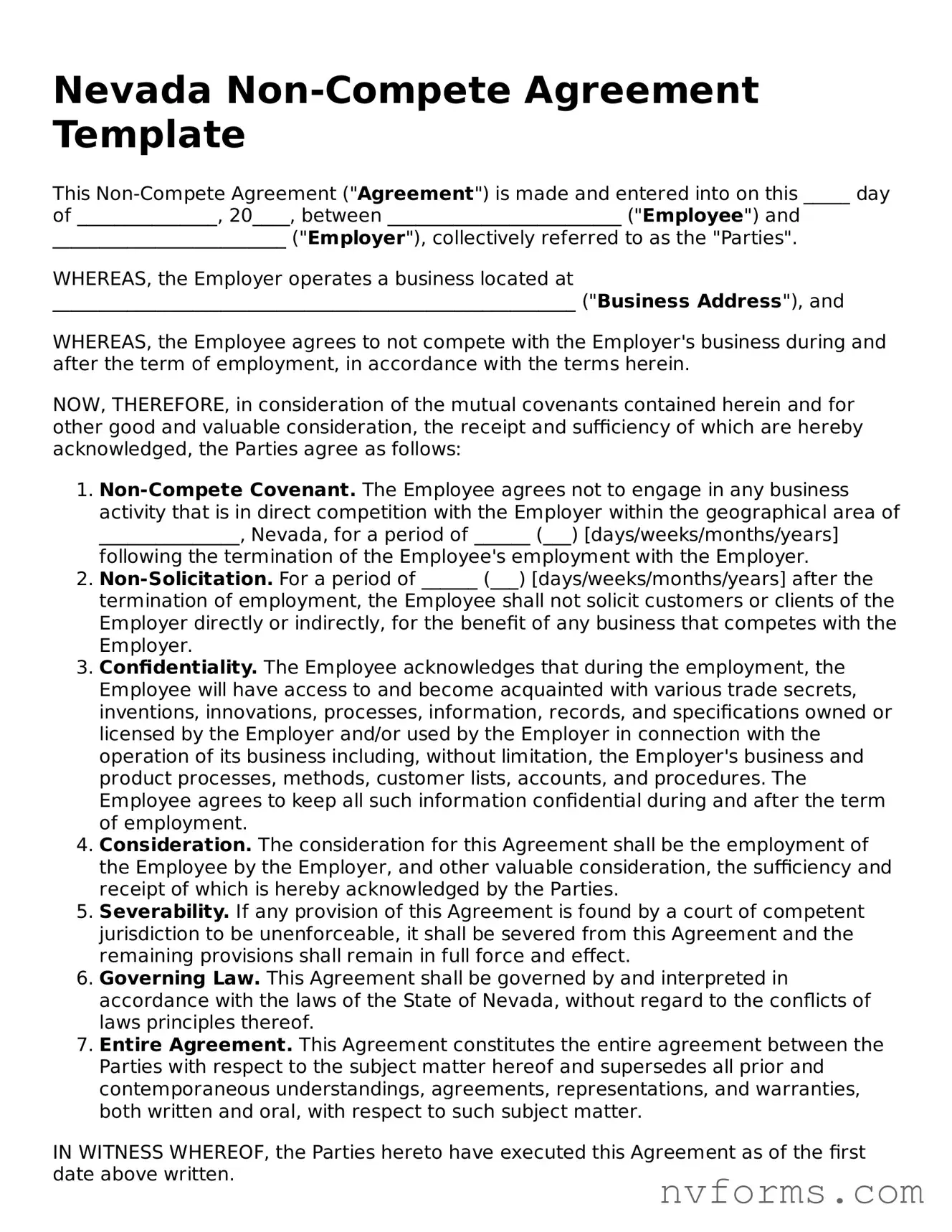Nevada Non-Compete Agreement Template
This Non-Compete Agreement ("Agreement") is made and entered into on this _____ day of _______________, 20____, between _________________________ ("Employee") and _________________________ ("Employer"), collectively referred to as the "Parties".
WHEREAS, the Employer operates a business located at ________________________________________________________ ("Business Address"), and
WHEREAS, the Employee agrees to not compete with the Employer's business during and after the term of employment, in accordance with the terms herein.
NOW, THEREFORE, in consideration of the mutual covenants contained herein and for other good and valuable consideration, the receipt and sufficiency of which are hereby acknowledged, the Parties agree as follows:
- Non-Compete Covenant. The Employee agrees not to engage in any business activity that is in direct competition with the Employer within the geographical area of _______________, Nevada, for a period of ______ (___) [days/weeks/months/years] following the termination of the Employee's employment with the Employer.
- Non-Solicitation. For a period of ______ (___) [days/weeks/months/years] after the termination of employment, the Employee shall not solicit customers or clients of the Employer directly or indirectly, for the benefit of any business that competes with the Employer.
- Confidentiality. The Employee acknowledges that during the employment, the Employee will have access to and become acquainted with various trade secrets, inventions, innovations, processes, information, records, and specifications owned or licensed by the Employer and/or used by the Employer in connection with the operation of its business including, without limitation, the Employer's business and product processes, methods, customer lists, accounts, and procedures. The Employee agrees to keep all such information confidential during and after the term of employment.
- Consideration. The consideration for this Agreement shall be the employment of the Employee by the Employer, and other valuable consideration, the sufficiency and receipt of which is hereby acknowledged by the Parties.
- Severability. If any provision of this Agreement is found by a court of competent jurisdiction to be unenforceable, it shall be severed from this Agreement and the remaining provisions shall remain in full force and effect.
- Governing Law. This Agreement shall be governed by and interpreted in accordance with the laws of the State of Nevada, without regard to the conflicts of laws principles thereof.
- Entire Agreement. This Agreement constitutes the entire agreement between the Parties with respect to the subject matter hereof and supersedes all prior and contemporaneous understandings, agreements, representations, and warranties, both written and oral, with respect to such subject matter.
IN WITNESS WHEREOF, the Parties hereto have executed this Agreement as of the first date above written.
Employee Signature: _____________________________________
Employer Signature: _____________________________________

